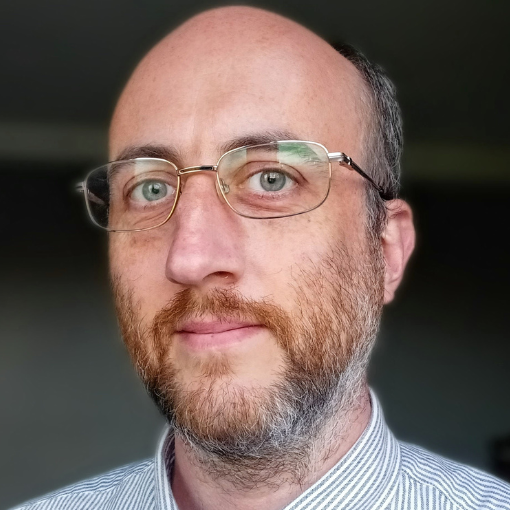Long-Form Journalism Workshop

Course Information
Where: Online
Date: TBA
Duration: 26 weeks
Skill level: Intermediate
Frequency: Fortnightly
Sessions: 11
Price: £3,000
Payment plans available
Register your interest to be notified when applications reopen.
Writing Long-read Reportage and Narrative Non-fiction
An intermediate-level course for non-fiction writers and journalists working on immersive, long-form stories that transcend straight news reporting to explore and analyse topical issues in depth and from different angles, offering new ways of understanding the defining particulars of our times.
The course guides participants through what it takes to find, pitch, research, structure and sustain an idea in long-form. We consider the complicated relationship of facts (and photographic images) to the truth, different modes of narration, the boundaries with fiction, ways to incorporate visual imagery and multimedia storytelling, and how to maintain reader engagement in long-form. We encourage experimentation and voice-driven writing alongside assiduous reporting, with the aim of producing long-reads that can change the conversation and affect public perception of institutions and society.
Over the six months you will develop one story – this could be an extended feature, reportage, investigative or state-of-the-nation piece, travel narrative, photo essay or interactive digital story. It could be a core portfolio piece, the beginning of a collection of essays, the seed of a book-length work of non-fiction, or a podcast or documentary idea.
You’ll be given a free one-year digital subscription to Granta magazine, as well as access to curated extracts from Granta books, and the magazine, podcast and video archive. Throughout the course there is insight from guest authors and Granta staff.
Finish the course with a story of up to 8–10,000 words, a pitch to take to an agent or editor, plus the confidence and resilience to maintain momentum with your project after the course ends.
Entry is by application to ensure you get the most out of the course. Answers to commonly asked questions can be found in the Frequently Asked Questions page.
Course completion opens up our Alumni Space, which provides ongoing access to industry professionals, including authors, Granta editors and literary agents.
Video | Samira Shackle
Samira Shackle is a multi-award-winning freelance journalist, author and editor. She is a regular contributor to the Guardian’s Long Read, and also writes for Guardian Saturday magazine, Al-Jazeera English, Prospect and GQ. In 2024 she was shortlisted as freelancer of the year at the Society of Editors’ awards. Samira’s first book, Karachi Vice was a BBC Radio 4 Book of the Week on its publication in 2021.
Samira Shackle | on Long Form Journalism
I’m Samira Shackle, Im a freelance journalist, author and editor. I’m the author of a book called Karachi Vice and a regular contributor to The Guardian long read section, and I’m the Course Director for Granta’s Long-form Journalism course.
We live in a moment where people are bombarded with information all the time. We’re in the era of twenty-four-hour news cycle and news on social media, and it can sometimes feel overwhelming. I think long-form journalism offers a real antidote to that. It’s a chance to take stock, to see stories and perspectives that you might not otherwise come across – at its best, to give you a completely fresh perspective on the world we live in.
I’m really excited to see the stories that students come to the course with, or that they develop over the duration of the course. You know, it’s a cliché, but there are just so many stories out there, and so many stories waiting to be told. I’m excited to see what perspectives they might have, what underreported issues that I’ve never heard about that I might be able to learn about through the course, all of those things. I’m really, really excited to see what people bring.
Course Syllabus
In our first session, you will learn how to identify a story you can build on, thinking about what has legs and developing your journalistic eye. We’ll have a brief look at the history of long-form journalism, and ask how long is long-form, and what formats you might work in, focusing on reported and investigative pieces and other options including the personal essay, polemic and travel narrative, as well as long-form audio and book-length narrative non-fiction. You’ll ask, ‘Why do I want to develop a piece in long-form?’.
There will be a group Zoom session with your tutor.
Session two focuses on what question you are setting out to answer. Why this, why now? And what makes a story worth telling long and deep? You will review your motives for telling this story – is it to be seen, to make sense, to shine a light, to mediate between past and present or conflicting perspectives? Learn to argue your ‘so what’ – why others should care about this story. Make a case, challenge and champion, and craft a call to action. You will receive feedback on an outline of your story idea.
Learn the art of the pitch and how commissioning really works. Thinking about your portfolio, find out what makes an effective calling-card piece, and how to make decisions on length, approach and research methodology based on who you are pitching to. Who are you writing for and how well do you know your audience? We’ll look at how they read, and whether you are already talking to your reader. We’ll think also about delivery models, funding and what lies beyond publication.
You will pitch your story idea in a live Zoom session with your course tutor.
Who do you need to tell this story, and how do you get to them? This session will help you use search engines and social media to find contacts, and think about effective ways to approach people and build trust. You’ll develop salient interviewing techniques and conduct first-person reporting on site, while looking at using lived experience, observational and immersive techniques. We will render speech into dialogue, consider the role of anecdote, and explore other ways to use people to power a story.
In this session we dive into desk and archive research, working out how to keep tabs on your information and answering the question, ‘What’s the point of all this detail?’ There’s a focus on court and public records, visual research and artifacts, and interpreting data. When is it useful to use AI? We’ll talk about this and organising systems while developing skills for keeping on top of everything. You will submit a research plan for your story idea.
There will be a group Zoom session with your tutor.
Dive into accessing and cultivating sources. How do you negotiate access and manage relationships in a way that’s ethical? How do you maintain good boundaries if you are talking to a source over a period of time? Whose story is this? Session six will discuss representation, objectification and a sensitivity framework. What are the ethics of seeing? How do you work with the law? You’ll consider who you are responsible to – subject, witness, reader, publisher, the law, ‘truth’ – and ask when does responsibility get in the way of good writing?
You will have a one-to-one Zoom tutorial.
There will be a research break to carry out practical research for the piece you will hand in at the end of the course.
Begin to organise your story, considering chronological options, causal connection, braided stories and chapter formats. Select your research to feed this story. We will also consider non-linear and boundary-defying shapes, lists and fractured content, exploring questions, absences and repetition. You will analyse visual storytelling, including using maps, graphics and interactive digital modes. You will also pin down your structure and begin visual planning as we think about ways to keep readers engaged in long-form. Study techniques including establishing empathy with a protagonist, delayed gratification, and allowing the reader to do some of the legwork. You will receive feedback on a map of your story.
There will be a live Q&A with a guest writer.
Session eight delves into the complicated relationship of facts (and photographic images) to the truth. What are ‘real’ facts versus remembered facts? What are the issues of memory and remembrance on the page? Whose versions of a story are you telling? When there are no facts, where do the techniques of the fiction writer and interiority become useful? We’ll consider speculative journalism and ways of rendering emotional truth as well as the ethics of representing real people on the page. What about composite characters, conflating events, and putting words in mouths? You will receive feedback on the first pages of your work in progress.
You will pitch a story idea at a live session with a guest editor.
Who is narrating this story? Session nine considers points of view and different modes of narrating past events. Who or what is at the centre of this narrative, and what is your role in relation to the subject and research? Learn about being present and narrative credibility. Engage with works that help you understand your voice on the page, thinking about ‘newsvoice’ versus personal voice versus literary voice. What about impartiality? What are the risks of being part of the story you’re telling? You will receive feedback on the first 3,000 words of your work in progress.
The penultimate session will be spent drafting your final piece for submission and thinking like an editor. Learn to hook your reader in paragraph one. Set guideposts for your structure and techniques that help you steer an argument, make connections and transition from fact to opinion and conjecture. Will you admit gaps in your knowledge or showcase your process? We’ll think about the techniques of the film-editor and develop skills to help you stay succinct in the long-form and keep readers on-side till the (satisfying) end.
There will be a group Zoom session with your tutor.
During this final month, there will be no formal exercises or extracts. The whole focus is on getting down to write and applying lessons studied over the course as you work on your final submission: 8-10,000 words of your long-form story plus a pitch document.
There will be a group Zoom with a Granta staff guest on editing and the submissions process.
At the end of the course, you will have a one-to-one exit tutorial to discuss your progress and where to take your work next, plus a tutor mark-up-of your final submission.
Throughout the course, enjoy exclusive video interviews, podcasts and transcripts of conversations between editors and authors including Mark O’Connell, Rachel Aviv, Imogen West-Knights, Snigdha Poonam, and James Pogue.
You will also be able to attend live Zoom Q&As with publishing industry guests during the six months. Previous guests include author Cal Flyn, Deputy Editor of Granta Luke Neima, and journalist and founder of the Guardian Long Read Jonathan Shainin.
This course requires up to 10 hours of study per week. Find out more about the course and teaching method from our education partners Professional Writing Academy.
Samira Shackle | Course Director

Samira Shackle is a multi-award-winning freelance journalist, author and editor. She is a regular contributor to the Guardian’s Long Read, and also writes for Guardian Saturday magazine, Al-Jazeera English, Prospect and GQ. She has broadcast on BBC Radio 4, BBC World Service and Al-Jazeera English.
She writes deeply reported, long-form features on a wide range of subjects – from the Gatwick drone mystery to the Pakistani military’s promotion of travel influencers, and the rise of hoarding disorder. Her work has won multiple awards, including a One World Media award (2023) and a Foreign Press Association award (2021). In 2024 she was shortlisted as freelancer of the year at the Society of Editors’ awards.
Samira’s first book, Karachi Vice – a work of narrative non-fiction about Pakistan’s largest city – was a BBC Radio 4 Book of the Week on its publication in 2021. In the Mail on Sunday, Razia Iqbal described it as: ‘A brilliant portrait of a complex place … the book is like a novel; each character is so beautifully drawn that we are in their heads with ease, though that is often a hard place to be.’
Samira has extensive experience as an editor, having worked at the New Statesman magazine (2008-12), then at the New Humanist, first as deputy editor, then as editor-in-chief (2014-23). This editing experience informs her writing and teaching.
I’m delighted to be directing Granta’s long-form journalism course. At a time of immense upheaval all around the world, good long-form non-fiction matters more than ever, as a way to step back, take stock and bring a fresh perspective through the power of storytelling. The course will equip writers with the skills to identify which stories merit the long-form treatment, how to research ethically and thoroughly, and how to deploy the devices of fiction - suspense, scenes, characterisation - while remaining absolutely faithful to the facts.
Daniel Trilling | Course Tutor

Daniel Trilling is a widely published journalist, author and editor based in London. He is a regular contributor to the Guardian’s Long Read and the London Review of Books, and has written for a range of publications including the New York Times, Financial Times and Al-Jazeera English.
He specialises in long-form reported journalism on human rights and politics, particularly migration and identity. His profile of the UK’s Home Office was shortlisted for the Orwell Prize in 2022, and his contribution to the reported essay collection Broke: Fixing Britain’s Poverty Crisis was shortlisted for the Orwell in 2023. His 2018 book, Lights in the Distance: Exile and Refuge at the Borders of Europe, was based on five years of reporting from multiple countries and told the story of Europe’s refugee crisis from the perspective of the people at its sharp end. His first book, Bloody Nasty People: The Rise of Britain’s Far Right (2012), investigated the revival of fascist politics in the 21st century.
He learned many of his most important writing skills by editing other people’s work - first, as an assistant editor at the New Statesman; then as editor-in-chief of New Humanist. Today, he works on various teaching and mentoring projects, including as an associate lecturer in journalism at London College of Communication, University of the Arts London, where he helps run the Refugee Journalism Project, a course for exiled media workers in the UK. Currently, Daniel is thinking about the limits of journalistic storytelling, as well as its strengths. To that end, Granta magazine published "A Place that Belongs to Us", an essay in fragments, in 2022.
I’m really looking forward to meeting and working with the writers on this course. Now, more than ever, there’s a need to tell engaging, moving, well-reported and detailed stories that help make sense of the complex world we live in. The course aims to give you all the tools you need to identify stories, report them thoroughly and sharpen your narrative skills to produce outstanding long-form journalism. Just as importantly, it’s an opportunity for us to learn from one another.
Testimonials
Through curated readings, cohort discussion, talks by industry professionals, and the stellar instruction of Samira Shackle and the Granta team, Granta’s course me the confidence and tools to produce, pitch, and publish long-form journalism comics for the first time. It’s a fantastic opportunity for anyone eager to hone skills and guide ambition.